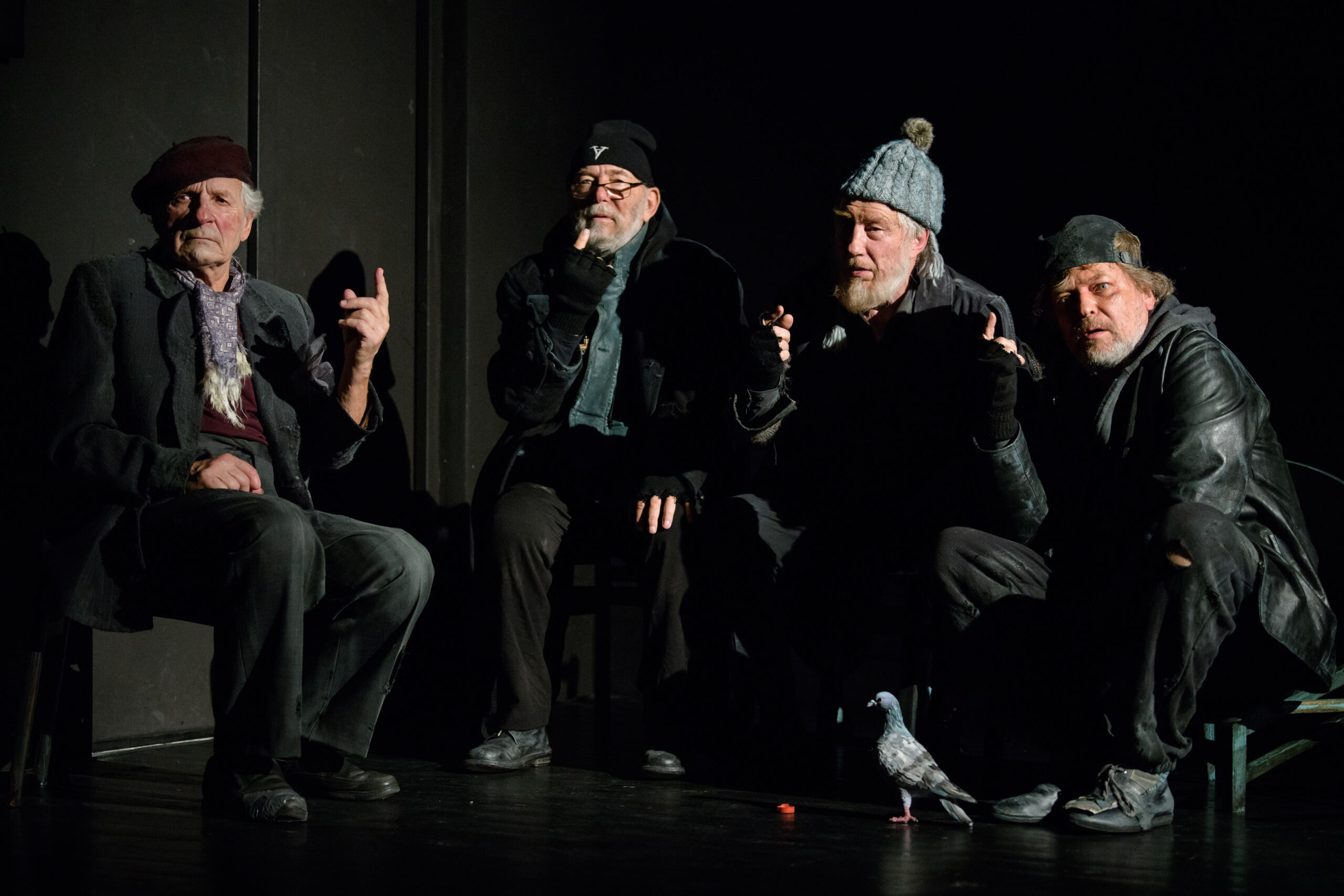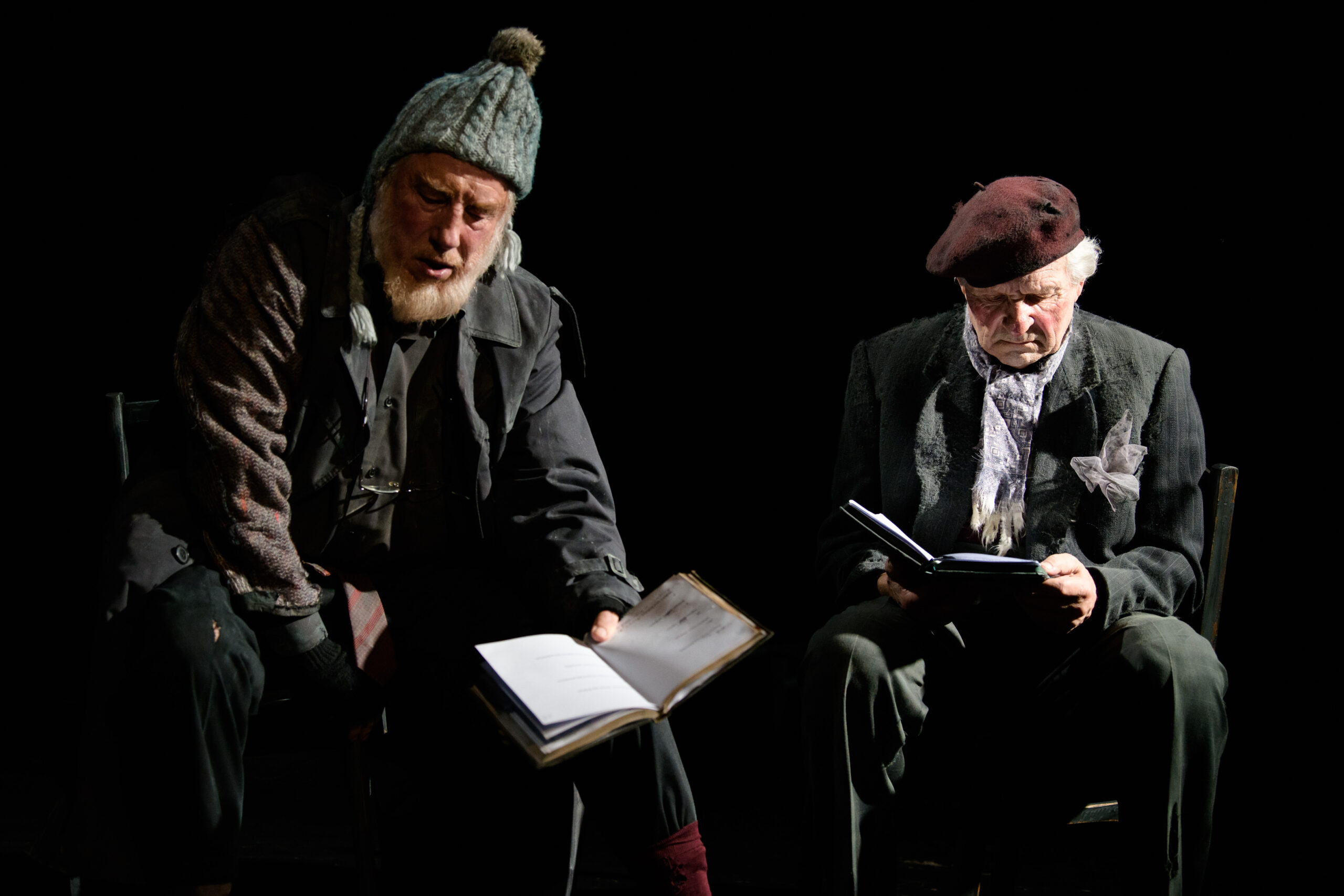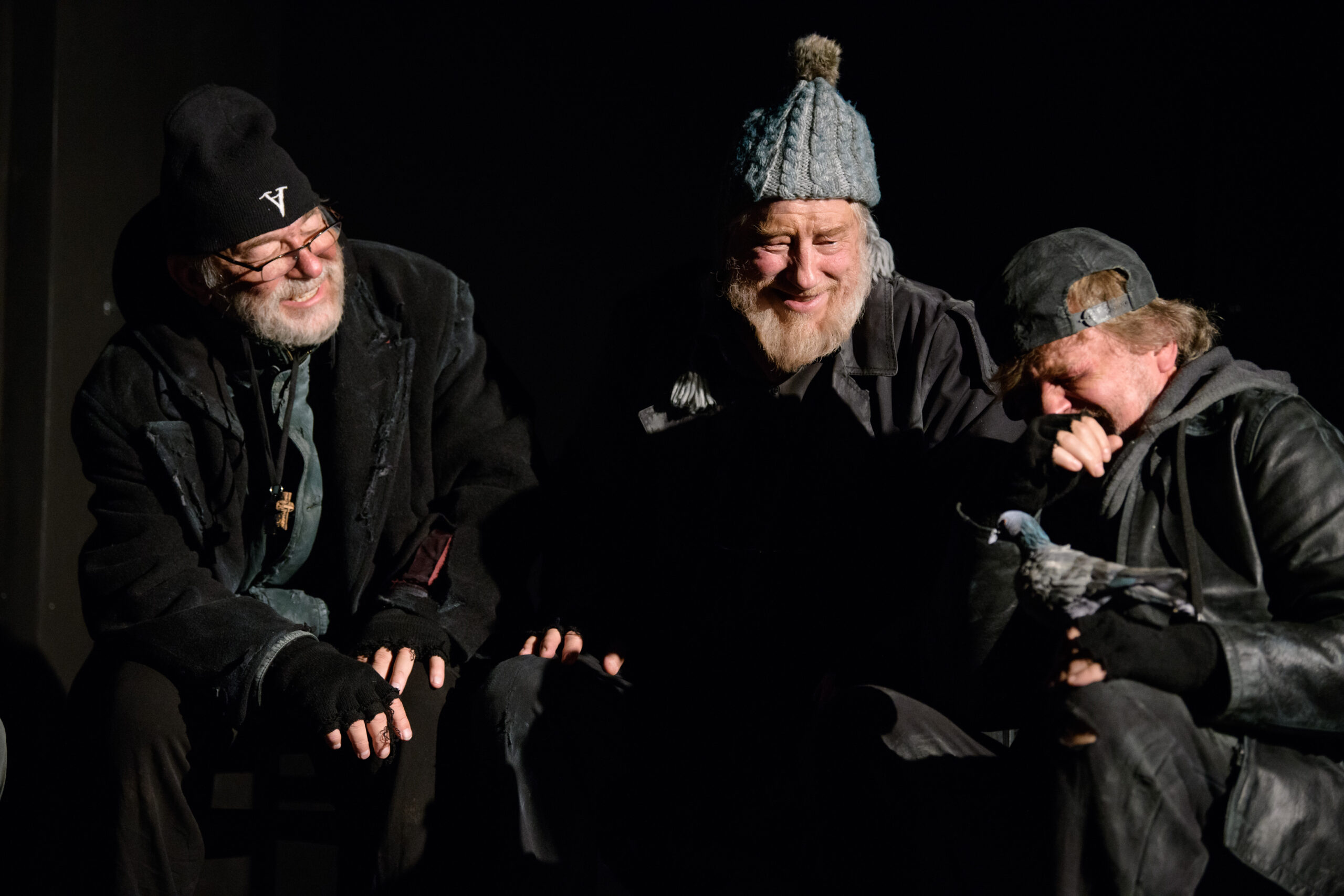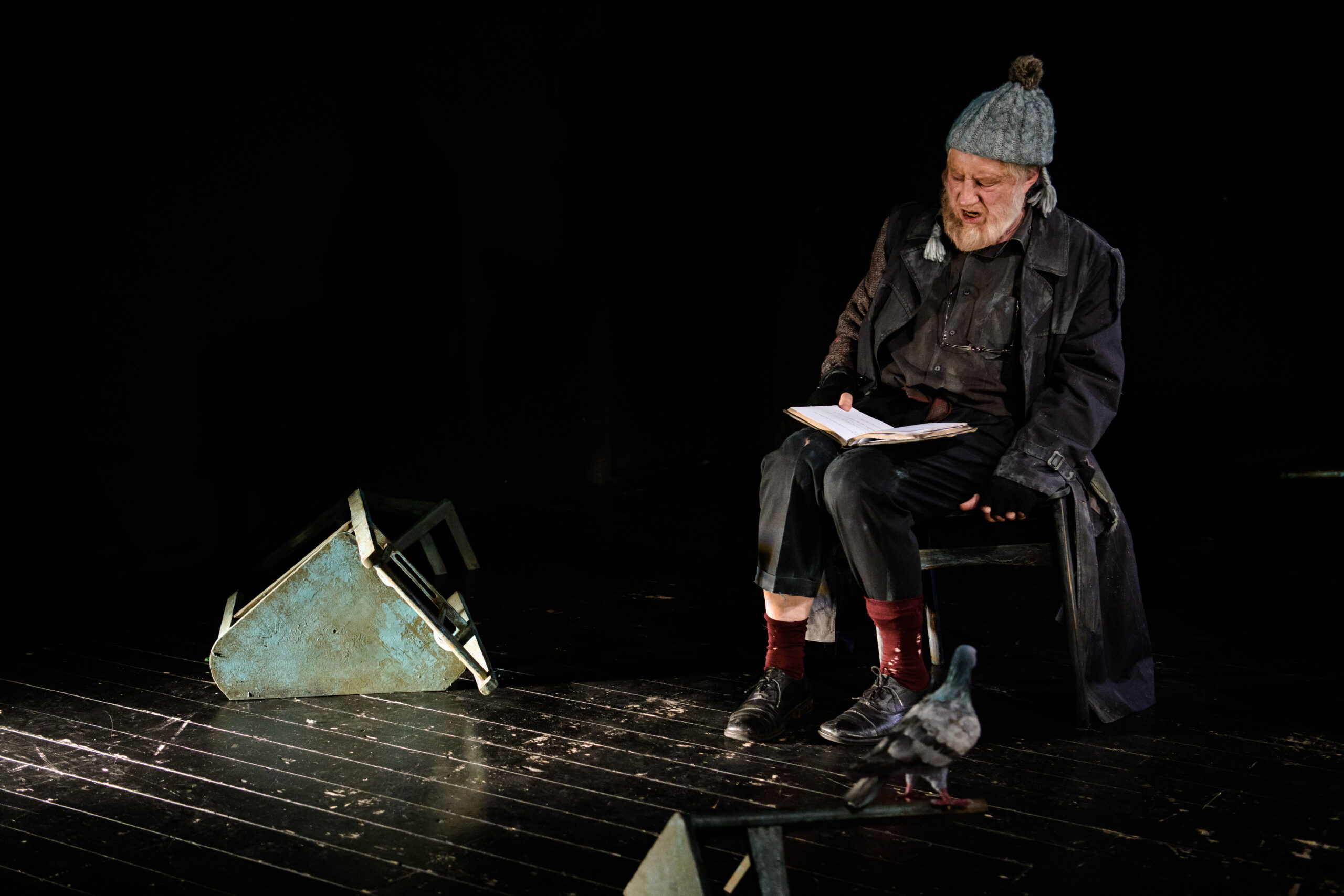Peter Handke is an Austrian writer who was awarded the Nobel Prize in Literature in 2019 “for an influential work that with linguistic ingenuity has explored the periphery and the specificity of human experience”. The main themes of his work are the reality surrounding human beings, and the search for the limits of language and subjective truth. Prophecy was written when the writer was only twenty-two years old. The author classified this work, as well as other plays written between 1964 and 1966, as so-called language plays. The play has no action, no plot lines, no set design: it focuses entirely on words.
In the beginning there was the word – phonetics and rhythm were the first elements that caught the attention of a young director, Justinas Vinciūnas. He was looking for ways to render the text as music, and to arrange its rhythmic score. Finally, the question arose: where is man?
Algirdas Latėnas, Vidas Petkevičius, Saulius Sipaitis, Gediminas Storpirštis, the true greats of the Lithuanian theatre stage, belonging to a generation that seems to be retiring from active life, will look for the answer to the question together with the director. According to the director, the experience of these actors becomes a counterpoint to the formalist style of the play. In their lips, Prophecy sounds both like a biblical metaphor and an absurd ode to everyday life filled with self-deprecating humor. The four readers A, B, C and D, mentioned in the play, take the form of homeless people. All of them have given up tangible forms of ownership – observers who have risen above everyday life.
Handke’s text is intertwined with authentic observations of the actors, real-life situations, which speaks about man’s search for a place and identity in the face of absurd reality. Handke’s work offers the possibility of a reality beyond words. The very act of reading itself saves us from playing with forms: the reader is confronted with a mysterious form, the meaning of which is unknown, but only by articulating it can one try to discover the content. In this way, the inner knowledge or the impression of it makes it possible to enter the reality of the text that is invisible to us. A reality that appeared before the emergence of concepts. Therefore, Prophecy can resonate with those who are accompanied by a sense of the uncertainty of reality. “This play is a small, but comforting reminder of the truth that lies somewhere beyond,” says director Justinas Vinciūnas.



